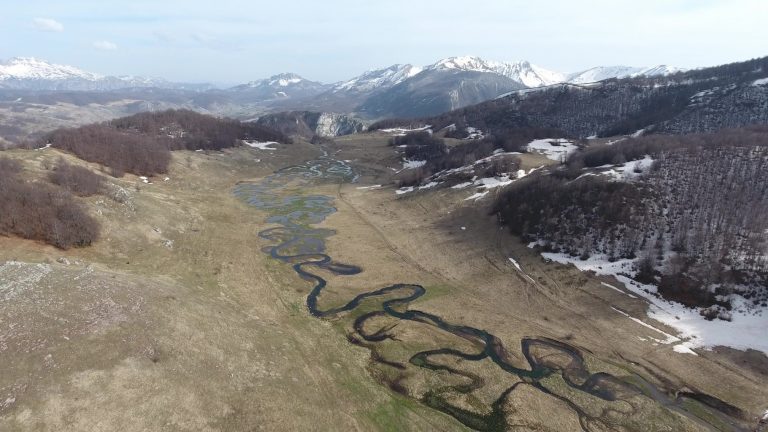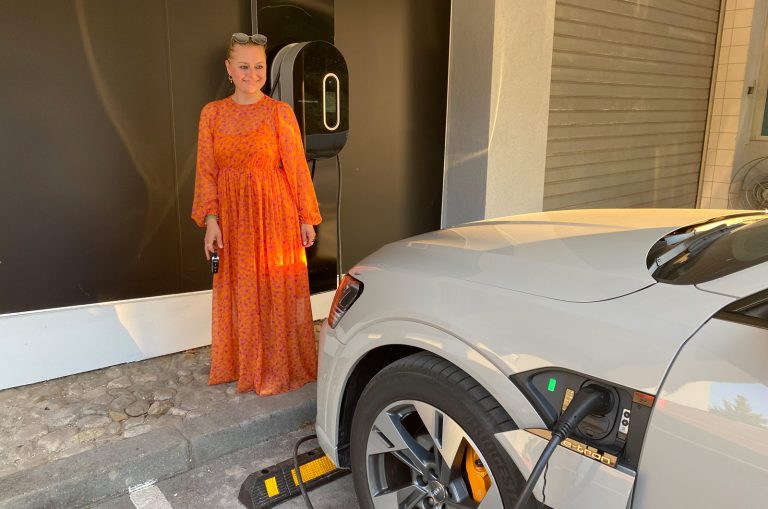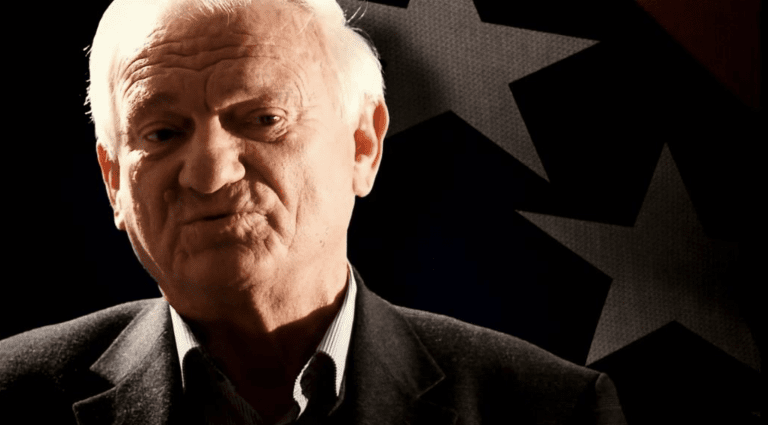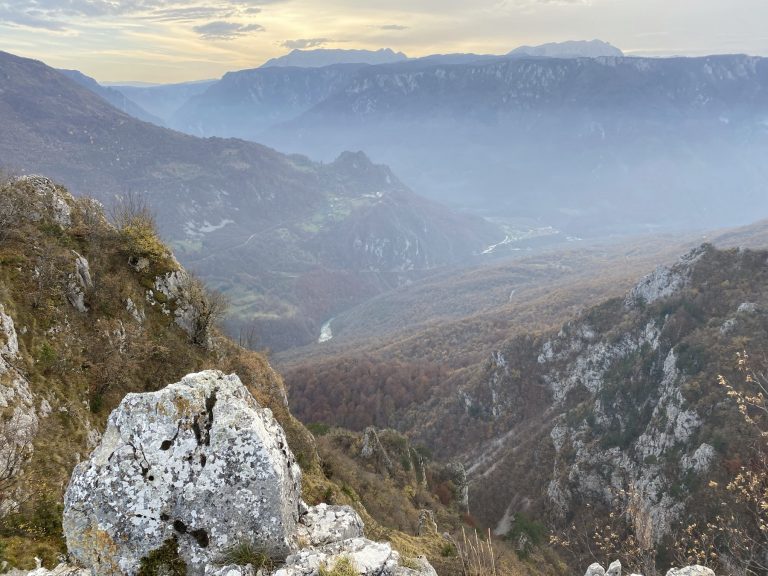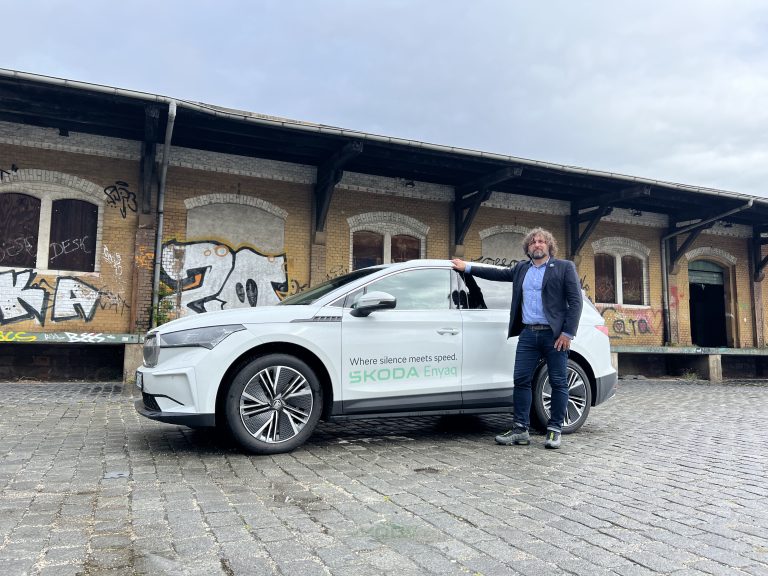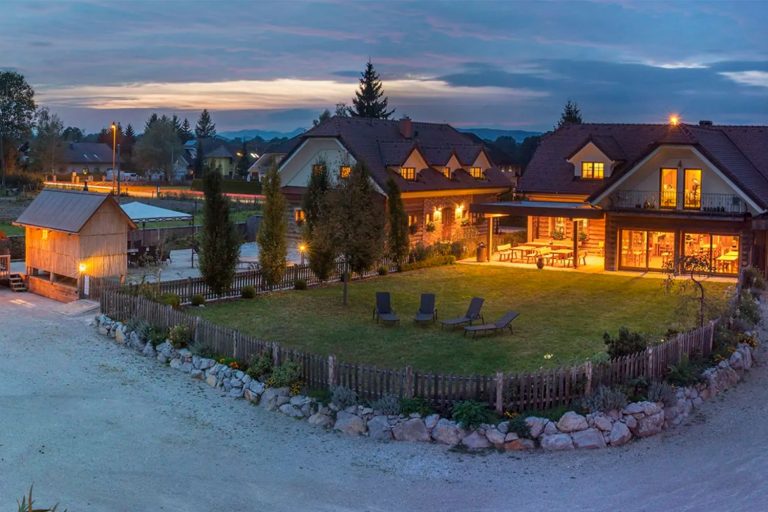A lot of green in Kosovo – ProCredit Bank opens first photovoltaic park
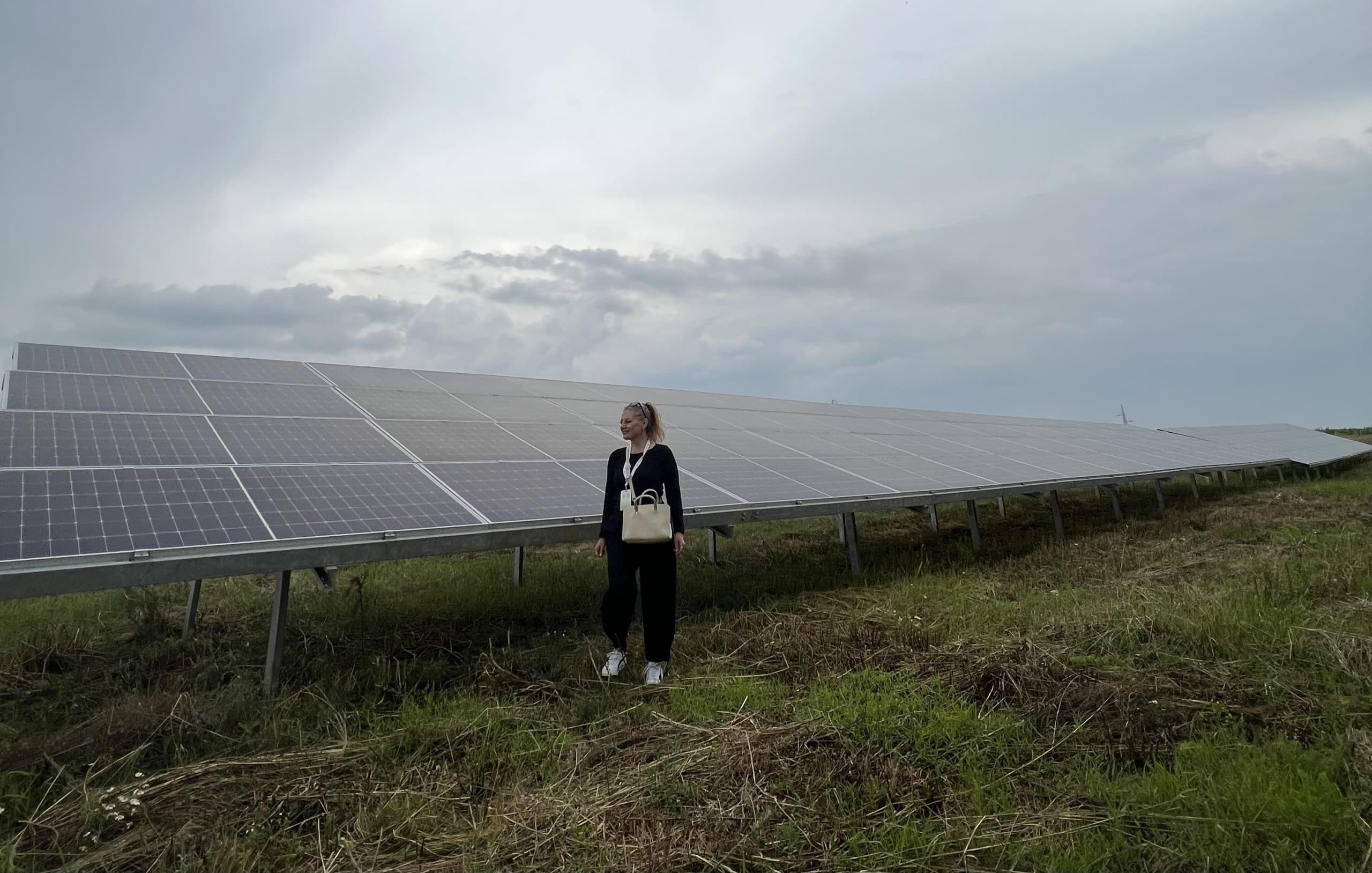
Thinking about Kosovo, I knew nothing about this country, except where it is located on a world map. I have never been there before even though the desire in me was great to visit it – ideally with an electric car during a road trip.
Therefore, I was even more pleased to receive an invitation from ProCredit Bank Bosnia and Herzegovina to participate in the ProEnergy event event entitled “The Road to Energy Transition: Energy Efficiency and Renewable Energy” in the capital, Pristina. An exciting topic for me, along with the venue where it will take place!
Largest solar park in the country
But the biggest surprise of this conference was the actual event: The ProCredit group, which is mainly active in Southeast and Eastern Europe, had reached its own photovoltaic park “ProEnergy” in the nearby town of Lipjan. This does not sound like a sensation right now. But it is a bit. The project is the largest solar park in the country!
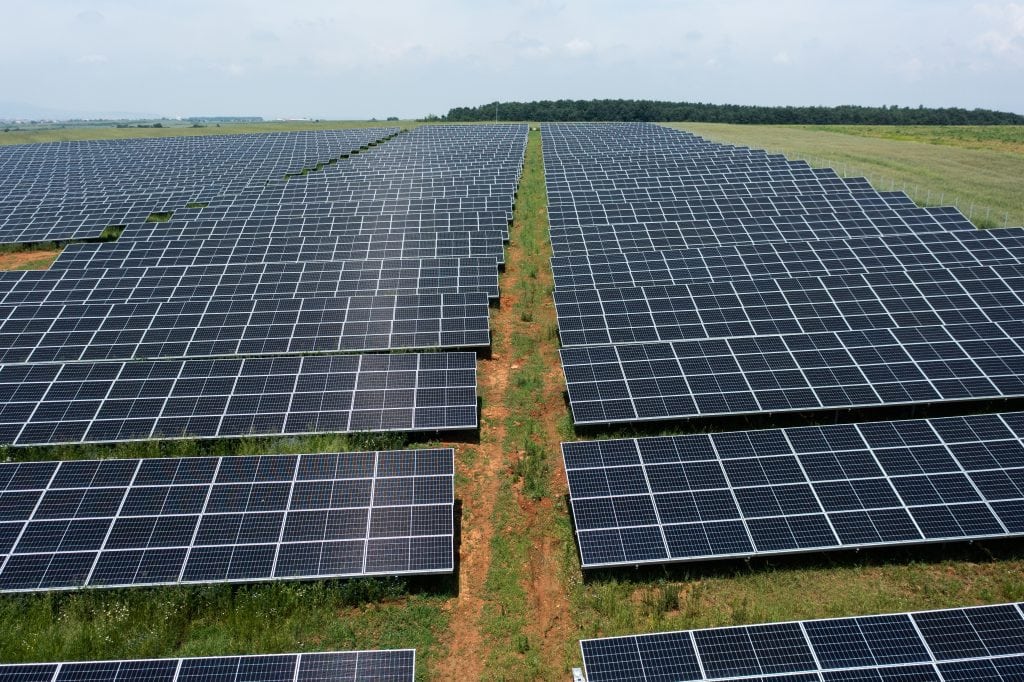
The joint project of ProCredit Bank Kosovo and its German parent company, ProCredit Holding in Frankfurt, cost around 2.5 million euros. The expected annual production of the 3 MWp solar park is 3,711 MWh. It is expected to supply 450 households with an average monthly electricity consumption of up to 700 kWh. This will save 3484 tons of CO2 per year! The absolute energy turnaround, if one considers that still in the year 2022 90 per cent of the generated electricity came from coal-fired power plants.
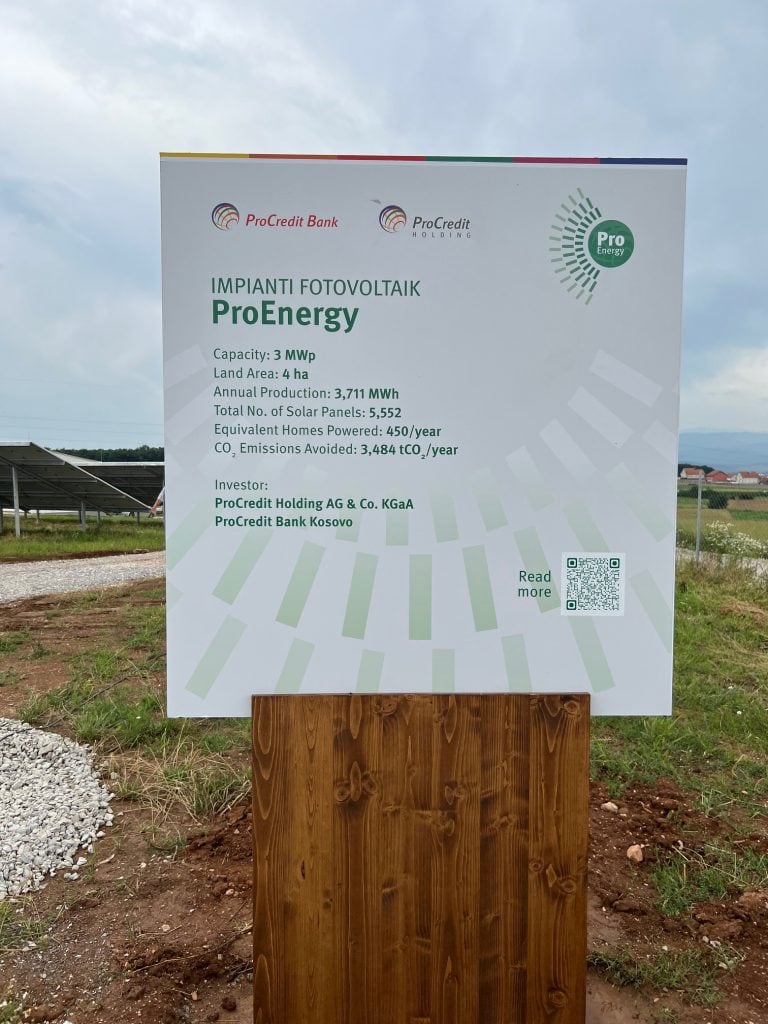
After the conference, most of the guests also took a sustained ride in 31 electric cabs to the solar field for the official inauguration and activation.
It is very hot when we arrive. Covering more than four hectares, the field will help reduce health risks and protect the environment, in addition to minimizing greenhouse effects.
With e-taxis to the photovoltaic park
I walk between the solar cells. It is silent. Only the buzzing of insects and the rustling of grasses and flowers, which are rocked back and forth by a light breeze. They are not yet in operation, but soon in a few minutes! I run back so as not to miss the official activation. I notice the eternal beating of the e-taxis. As an e-car tester, I’m curious and run to it. I am already interested in the car brand. A group of people next to it, on the other hand, arouse greater curiosity. Presumably, these are the cab drivers. All men and in between a petite young woman. We get to talk. The men, who speak English, proudly tell me that Kosovare, the name of the young woman, is the first female cab driver and their valued colleague. They also tell me how much they like their e-cabs.
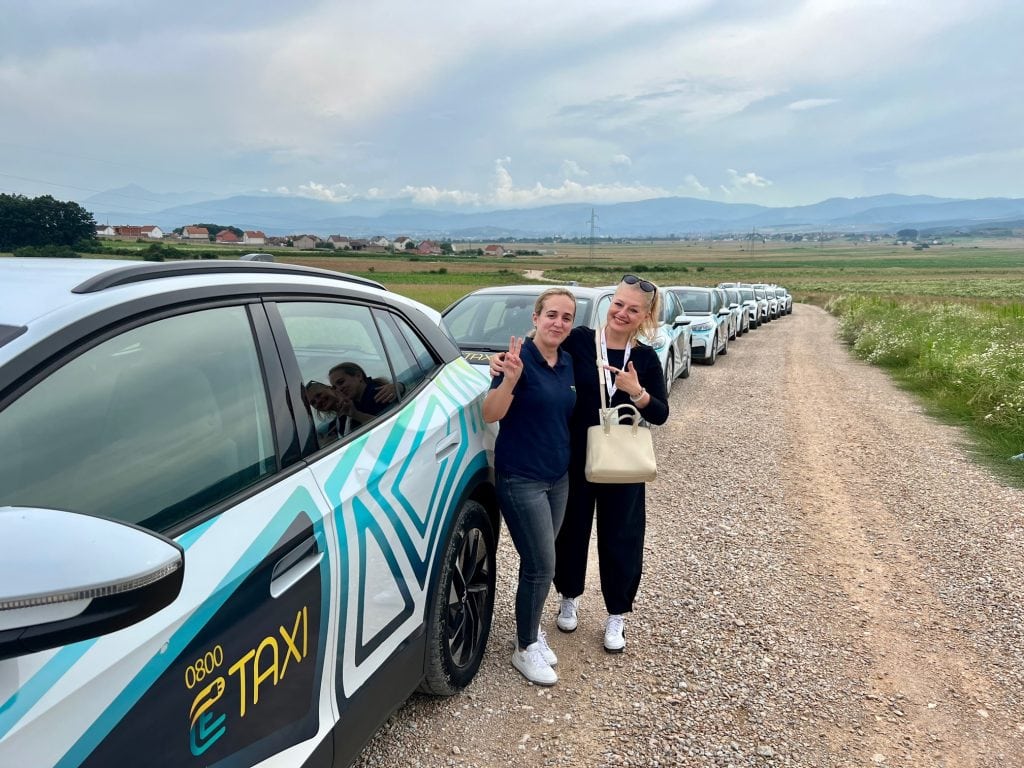
I remember my visit to Albania last year. The capital Tirana was an absolute surprise. Not only in terms of beauty and modernity, but also because of their sustainable thinking. More than 150 e-cabs are already on the road there. And who wants to acquire a cab license – only with an e-car please!
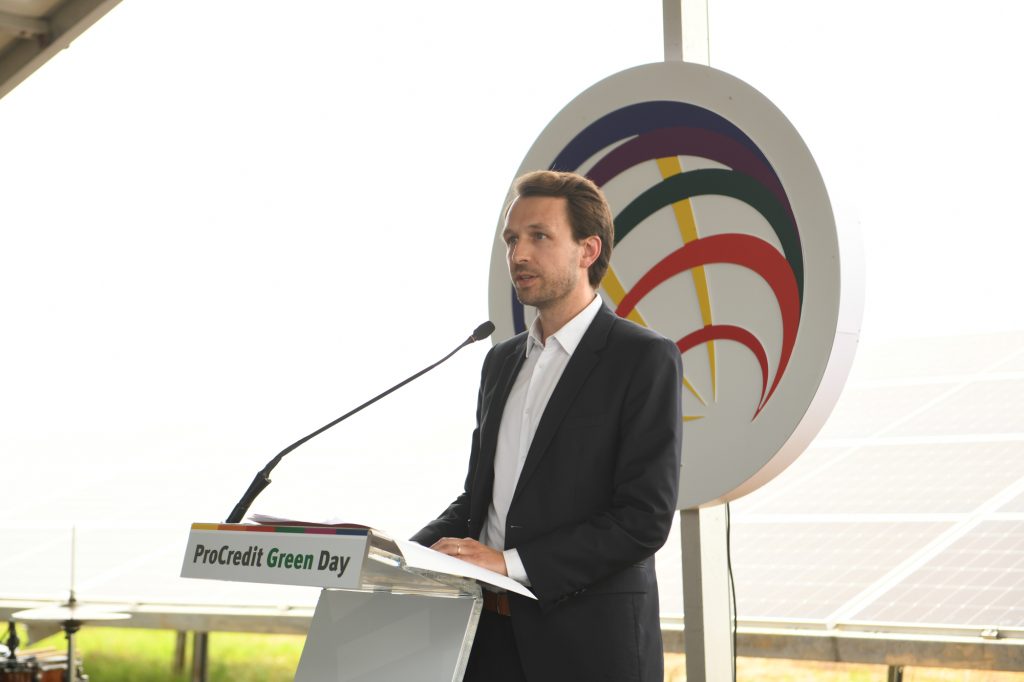
Dr. Marcel Zeitinger, Head of the Social and Environmental Risk Management Team at ProCredit Holding and manager of this ProEnergy Park project explains this move as follows: “Given the climate crisis and geopolitical tensions, we need to be proactive and focus on the current situation. Projects for the environment and energy must contribute to climate protection. Therefore, we hope that this project will serve as an example for other similar projects.” The son of the bank’s founder, Karl Patrick Zeitlinger, also emphasized in his speech the importance of banks working in harmony with nature and for the benefit of civil society. There is no time and no place for greenwashing in this day and age.
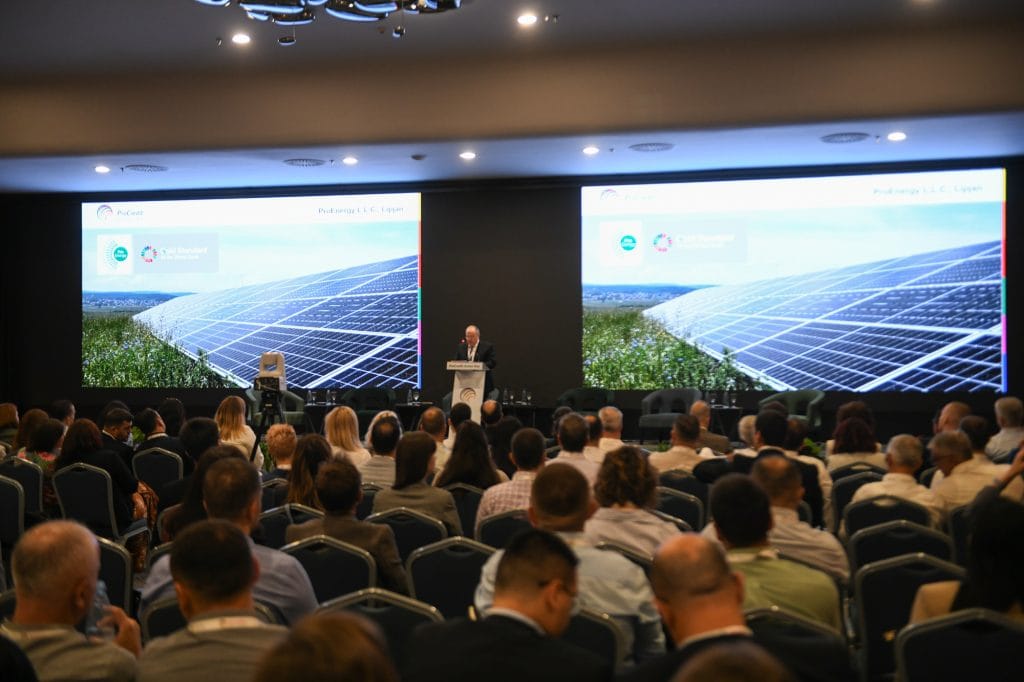
Hubert Spechtenhauser, CEO of ProCredit General Partner AG also adds: “As an impact-oriented banking group, we at ProCredit are in a unique position to make our contribution to the energy transition. Our investment in the ProEnergy photovoltaic plant in Kosovo clearly underlines the seriousness of our approach. As the ProCredit group, we look forward to advancing climate protection, advising and supporting our customers in the energy transition and thus also contributing to advancing the goals of the Paris Climate Agreement.”
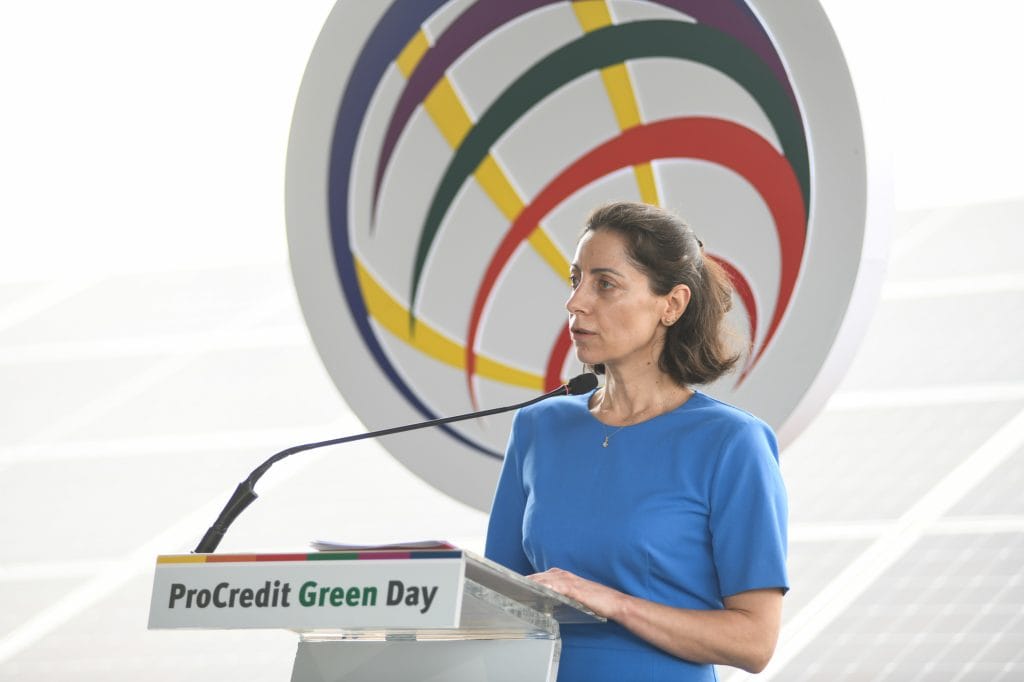
Eriola Bibolli, a member of the Management Board of ProCredit General Partner AG and member of the Supervisory Board of ProCredit Bank Kosovo impresses me very much. Even at the conference, she stressed the need to break away from traditional banking. Which is what ProCredit does. Creditworthiness is defined differently here. You have a good sustainable idea, which will be good for the environment and society over a longer period of time? You are in this first game! She is very pleased with her speech: “Due to my many years of working for ProCredit Bank Kosovo, today’s inauguration of ProEnergy is a particularly important day for me. I am proud that ProCredit is opening its own solar park, the first facility of its kind owned by a banking group in Kosovo, thus also promoting the need for renewable energy development. Given the dominance of coal-fired power plants in Kosovo’s energy production, I hope our investment will spur further positive change in the country’s energy landscape.”
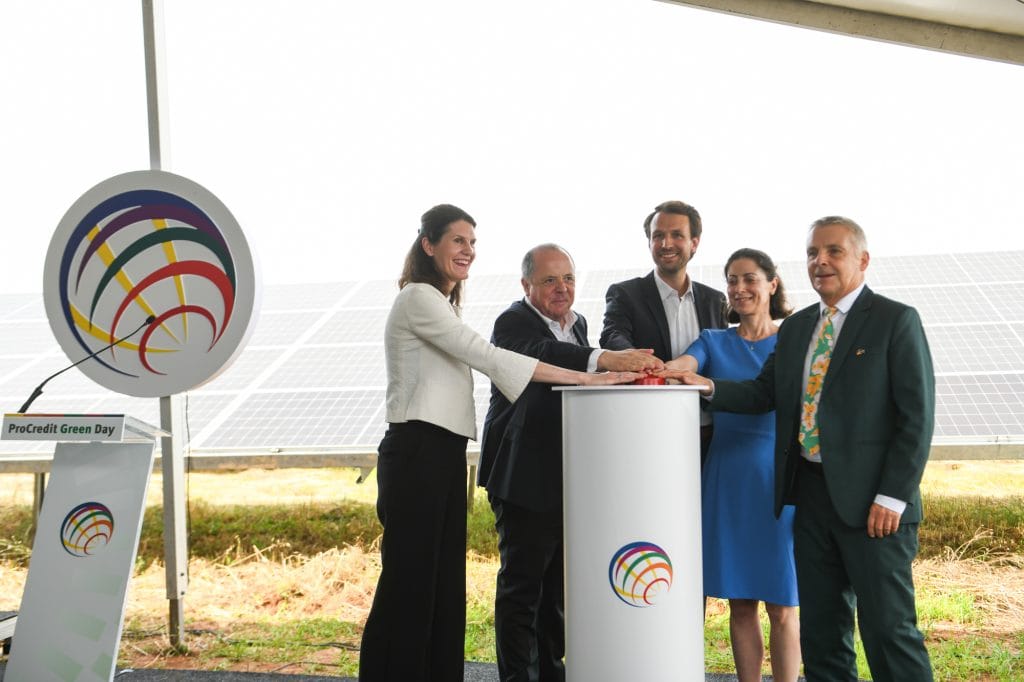
With this project, ProCredit aims to help change the energy landscape not only in Kosovo, but in all the countries in which it operates. Stabilization and ecological transformation are at the top of the list. And this has been the case for many years. Thanks to this mindset of becoming carbon neutral in 2018, the ProCredit group has been able to almost halve its own emissions.
Capital for the benefit of the environment and society
It is evening. Dinner time. We are invited to the best traditional restaurant in the city of Pristina. “Today we’re serving the best cheesecake you’ve ever tasted,” my colleagues at ProCredit Bank BiH explain to me. Nothing would surprise me anymore in this young European country, which is enthusiastically heading towards a green future. On the way to the restaurant, she tells me how the first bank in Bosnia and Herzegovina was founded after the Balkan war, with the aim of rebuilding the country and supporting small private businesses through microcredit. The bank maintains a list of exclusions and makes careful decisions about the entities they collaborate with. It is strictly forbidden to invest money as capital, which is harmful to the environment and society.

I remember my new ProGreen account at the bank again. Now I am sure what will happen to my invested money. It is invested in green projects and thus I contribute to a better future. At the end of March 2023, green loans accounted for 20.2% of the ProCredit group’s loan portfolio. This represents a total of EUR 1.2 billion in loans earmarked for investments in energy efficiency, renewable energy or other green investments. One-third of these disbursed loans are already flowing into renewable energy projects. I am excited and grateful that after much research there, I opened an account in my new home country of Bosnia and Herzegovina. After several courses comes the long-awaited cheesecake. I am in love with shock! It actually tastes different and the best I have ever tasted! I eat two pieces of it. Afterwards I am happy and flat.
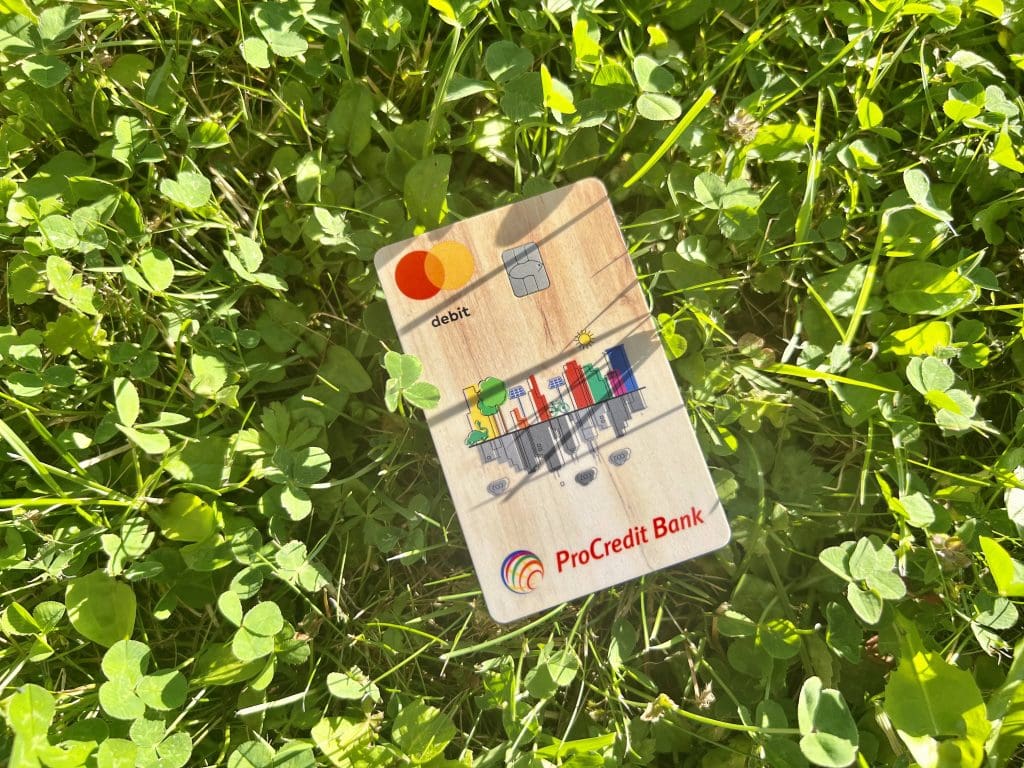
Tomorrow morning at four we will go back to Sarajevo. Before I get on the plane I buy myself some breakfast. I pay with my ProGreen debit card. I smile as I hold it up to the terminal. Also it is purely theoretically “edible”, it was built from corn fiber and is therefore, except for the chip, fully compostable.
Read also: How ProCredit Bank is revolutionising sustainability in Bosnia and Herzegovina
This wonderful Balkans – whether Albania, Kosovo or Bosnia-Herzegovina are not only green in terms of wonderful nature, but also further than thought in their thinking towards green future! And thanks to ProCredit Bank in the countries, it’s getting closer than we thought!

